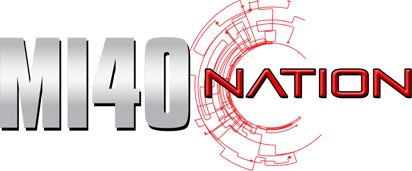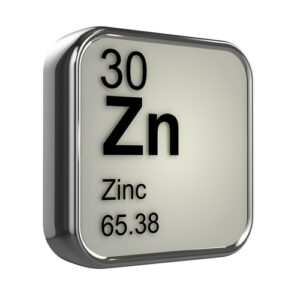The Essentials of Bodypart Specialization: Chest Training
Let’s face it – seeking out the right information can be confusing whether you are a bodybuilder or just an ...

Let’s face it – seeking out the right information can be confusing whether you are a bodybuilder or just an ...
Beta-Alanine, touted as the most effective muscle-building supplement since creatine! While its resumé sounds undoubtadly impressive, does it really hold ...
Imagine an image such as this…. You are in your car heading to the gym to train today. You have ...
One of the most frustrating and damaging metabolic conditions a person can have is insulin resistance. On one end, insulin ...
We’ve all been there. You’re in the gym busting your ass everyday, your diet is on point and you’re making ...
Minerals like zinc and magnesium are necessary for us to properly use energy, detoxify our bodies, and hundreds of other ...
In this eye-opening article, Ben gives a breakdown of what cardio ‘actually’ is, and how the application of this newfound ...
Today I drove to the gym today heading into my first leg day of the week. My current training protocol ...
In a startling feat of biological engineering, our body must involuntarily produce an array of chemicals to promote specific actions ...
Let’s face it – seeking out the right information can be confusing whether you are a bodybuilder or just an ...
In matters physiological, the process of occlusion has largely negative connotations. Occlusion, meaning to shut off or obstruct, of a ...
 On the excellent advice of reputable professionals, countless aspiring bodybuilders are doing all that is necessary to gain the training edge. Sound sleep, structured eating, short intensive training sessions, targeted supplementation, and healthy lifestyles conducive to enhancing workout focus and immune function are carefully considered variables such lifters are encouraged not to overlook.
On the excellent advice of reputable professionals, countless aspiring bodybuilders are doing all that is necessary to gain the training edge. Sound sleep, structured eating, short intensive training sessions, targeted supplementation, and healthy lifestyles conducive to enhancing workout focus and immune function are carefully considered variables such lifters are encouraged not to overlook.
However, if you have been following the articles on Nation, you will have noted that there is much more we can do to further build upon the training variables that have brought us to our present levels of size and strength.
While we may feel we are doing ‘whatever it takes’ to build an impressive physique, there may nevertheless be a great many overlooked variables that are holding us back from reaching our true mass building potential. One such factor could be the essential mineral zinc.
Often overlooked, zinc plays a vital role in supporting lean muscle growth. Essential for the catalytic activity of over 300 enzymes and involved in numerous aspects of cellular metabolism, zinc must be at sufficient levels to keep the body functioning on all cylinders.[8] Most notably, zinc plays an underrated role in protein synthesis, immune function, and testosterone production.[2][6][12]
Testosterone Production
Of the major muscle building benefits of zinc, testosterone production would, for obvious reasons, rank highest. In fact, of all its many and varied benefits, zinc is perhaps most famous in the muscle building community for its ability to boost testosterone.
A study of 88 men, aged 40 to 60, demonstrated that those with normal testosterone levels had vastly higher zinc levels compared to those with low T.[7]  The crucial role testosterone plays in enhancing muscle strength, protein synthesis, and training aggression is clear, and zinc plays a pivotal role in optimizing this vital hormone.[12]
The crucial role testosterone plays in enhancing muscle strength, protein synthesis, and training aggression is clear, and zinc plays a pivotal role in optimizing this vital hormone.[12]
Joint Health
An all-round tissue healer, zinc can also prevent the breakdown of connective tissue, especially when the body is recovering from wounds. This is notable when you consider how much stress weight training places on the joints and connective tissue.
Enzymes
Going beyond testosterone and tissue health, some of the most well studied and prominent uses of zinc are as a cofactor to many different enzymes. For example, zinc is essential for the function of enzymes involved in protein metabolism, red blood cell function, respiration, mTOR activated protein synthesis, and even insulin sensitivity. So from the kitchen to the weight room, zinc proves itself indispensable.
Supports immune function and boosts health
Poor immune function and the oxidative stress brought about by intense exercise can negatively affect muscle building on many levels. By functioning as a cofactor to the potent antioxidant enzyme, superoxide dismutase, and as part of the signal required to trigger the body’s disease fighting T-Cells, zinc promotes many of the body’s cellular defenses.[3][10][11]
Intake
The body has no specialized storage system for zinc, so we must ensure  that our zinc levels are replenished daily.[10] While the recommended daily allowance (RDA) for zinc stands at 11mg and 8mg for adult males and females respectively, it is important to note that zinc levels can easily be depleted through intensive exercise, illness, sexual activity, and the day to day stresses of life.[4]
that our zinc levels are replenished daily.[10] While the recommended daily allowance (RDA) for zinc stands at 11mg and 8mg for adult males and females respectively, it is important to note that zinc levels can easily be depleted through intensive exercise, illness, sexual activity, and the day to day stresses of life.[4]
A higher intake of zinc may therefore be necessary for some individuals. Although the tolerable upper intake limit is set at 34mg per day – keeping in mind that excessive doses may suppress the immune system and have other negative side effects – it is best to keep your daily intake around 25mg just to be safe.[12]
By eating a wide variety of zinc-containing foods, such as oysters, beef, nuts, seeds, and taking a quality zinc supplement, hitting your daily zinc targets should be pretty easy.
Mega Mineral
A healer on multiple levels, zinc is a crucial component of thousands of unique biological processes. A muscle-building testosterone booster, immune enhancer, and growth stimulator, zinc can be placed among the most multifunctional of micronutrients. Be sure to optimise your zinc levels to take your progress to new heights.
References